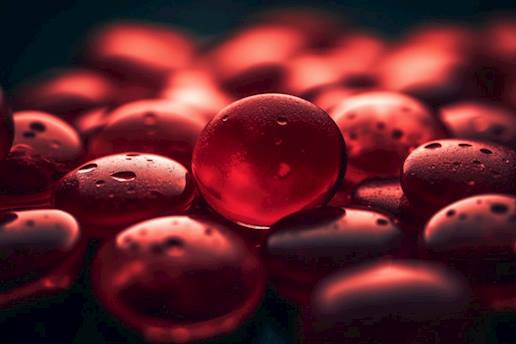
Anemia is a condition that occurs when the number of healthy red blood cells or the amount of hemoglobin in the blood is insufficient. This affects the blood’s ability to carry oxygen to body tissues, leading to fatigue, dizziness, and shortness of breath — even with minimal effort.
Iron Deficiency Anemia: The most common type, often caused by poor diet or blood loss.
Vitamin Deficiency Anemia: Especially due to lack of vitamin B12 or folic acid.
Anemia of Chronic Disease: Linked to conditions such as kidney disease or chronic inflammation.
Inherited Anemias: Such as sickle cell anemia and thalassemia.
Symptoms may vary depending on the type and severity, but often include:
General fatigue and weakness
Pale or yellowish skin
Shortness of breath, especially with exertion
Rapid or irregular heartbeat
Cold hands and feet
Headaches or lightheadedness
Brittle nails or hair loss
Anemia is diagnosed through:
Complete Blood Count (CBC) to check hemoglobin levels and red blood cell count
Iron and Vitamin Tests to detect deficiencies
Additional tests such as bone marrow examination in chronic or unclear cases
Treatment depends on the underlying cause:
Iron Deficiency Anemia
Iron supplements (oral or intravenous)
Diet rich in iron such as red meat, liver, spinach, legumes
Vitamin B12 or Folic Acid Deficiency
Vitamin supplements or injections
Consumption of foods rich in B12 and folate like dairy, eggs, leafy greens
Anemia of Chronic Disease
Treating the primary illness
Use of medications that stimulate red blood cell production or blood transfusion when needed
Inherited Anemias
Regular follow-up with hematology specialists
Blood transfusions when required
In certain cases, bone marrow transplant or specific medications
A healthy, balanced diet plays a key role in preventing and managing anemia. Essential nutrients include:
Iron: Found in red meat, liver, lentils, and dark leafy greens
Vitamin C: Enhances iron absorption, found in citrus fruits and tomatoes
Vitamin B12: Found in animal-based foods
Folic Acid: Present in vegetables, legumes, and fortified cereals
Eat a diet rich in iron, vitamins B12 and C, and folic acid
Undergo routine blood tests, especially for pregnant women or individuals with chronic conditions
Avoid medications that can lead to blood loss unless medically necessary
Address any signs of fatigue, bleeding, or weakness promptly